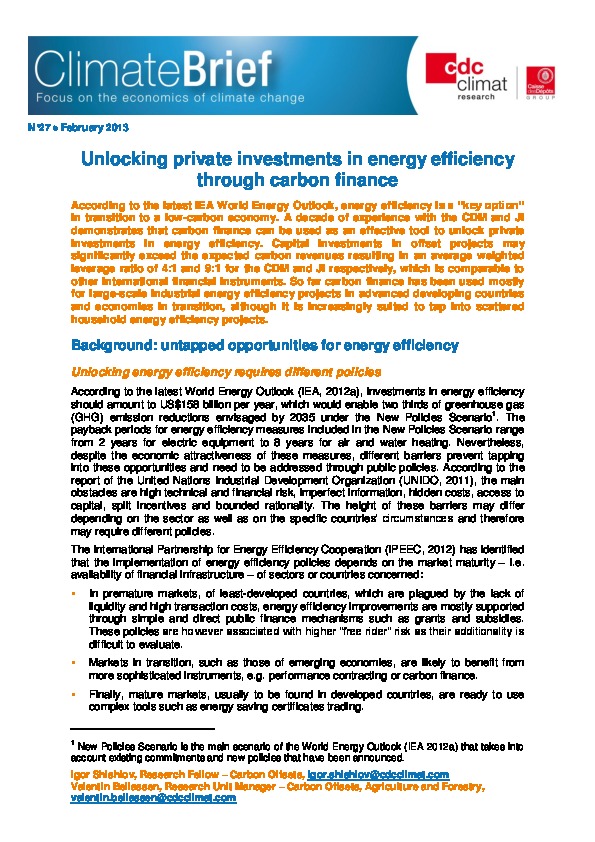Unlocking private investments in energy efficiency through carbon finance
By Igor Shishlov and Valentin Bellassen, I4CE
According to the latest IEA World Energy Outlook, energy efficiency is a “key option” in transition to a low-carbon economy. A decade of experience with the CDM and JI demonstrates that carbon finance can be used as an effective tool to unlock private investments in energy efficiency. Capital investments in offset projects may significantly exceed the expected carbon revenues resulting in an average weighted leverage ratio of 4:1 and 9:1 for the CDM and JI respectively, which is comparable to other international financial instruments. So far carbon finance has been used mostly for large-scale industrial energy efficiency projects in advanced developing countries and economies in transition, although it is increasingly suited to tap into scattered household energy efficiency projects.
